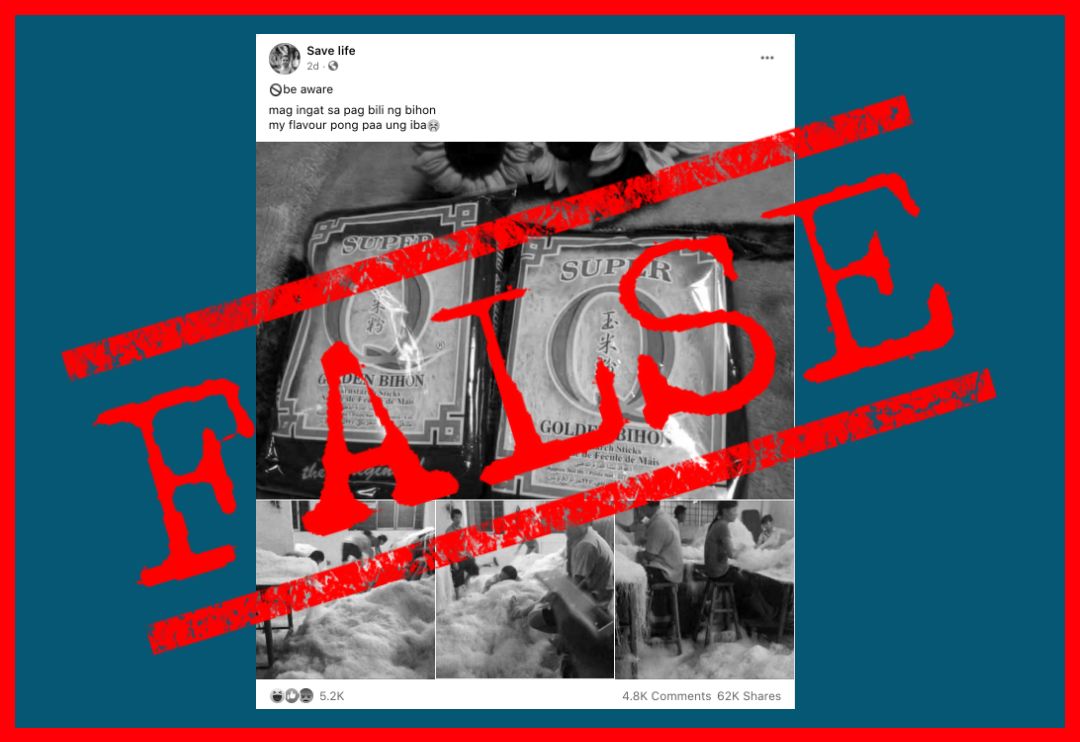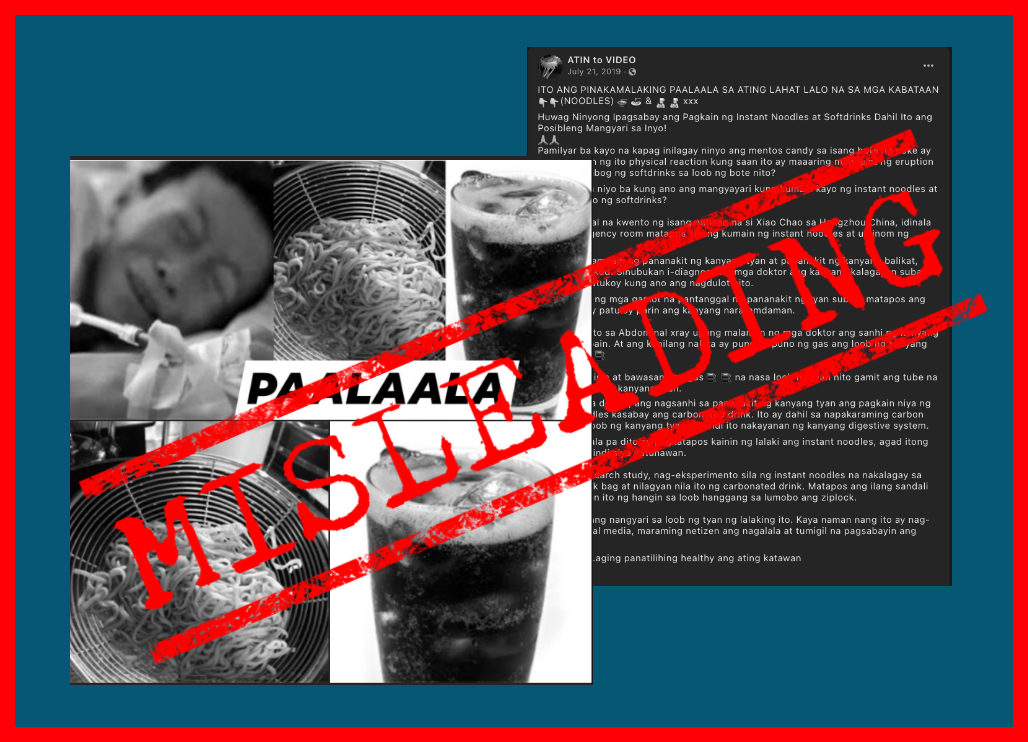(UPDATED) Three old photos showing unsanitary conditions in a rice noodle factory in China were wrongfully used in an April 13 post by the Facebook (FB) page Save life while warning the public against a noodle brand in the Philippines.
A reverse image search revealed that the pictures were taken at least six years ago in southern China, and do not show the production of the local noodle brand shown in the post.
The false post, shared 62,000 times as of publishing, featured a photo of two packs of Super Q Golden Bihon and the three images showing workers handling noodles without the appropriate factory uniforms, stepping barefoot or lying on heaps of noodles on the floor. The page Save life captioned it: “Be aware. mag ingat sa pag bili ng bihon my flavour pong paa ung iba (Take caution when buying bihon, some taste like feet).”

Ngosiok Marketing—owner of Super Q noodle products—is based in Cebu City, according to its official website. Its factory is located in nearby Talisay City.
The earliest retrievable copy of two of the three factory images could be found in a June 10, 2014 news report in the English-language website of Chinese media Sina. The third could be traced to an article the next day by Hong Kong-based media The Sun.
Both said the images of the factory had gone viral on Chinese social media platform Weibo and were labeled by netizens as the “stinky feet rice noodle” factory. Local authorities identified the business as the Tongcheng Rice Noodle Factory in the town of Daojiao, Dongguan City in Guangdong province, China.
The company was ordered to suspend operations until it was able to adhere to sanitation policies. Other reports said it was not the first time the Tongcheng Rice Noodle Factory received backlash for its unhygienic operations.
On April 18, Ngosiok Marketing published a statement on their FB page calling the association of their products with the Chinese factory “deplorable.” It added that their bihon noodles are different from the noodles visible in the circulating images of the factory.
“Please note from the pictures that our product is hard and has a definite rectangular formby automatic machine. It goes through further processing including mechanical drying and finally to the packaging machine. Placement of the products on the floor is avoided,” the statement read.
cGMP and HACCP. HALAL certifications on our process and products are also issued by the Islamic Da’wah Council of the Philippines.”
Many netizens decried Save life’s post as “fake” in the comments section and provided screengrabs of the 2014 reports about the Chinese factory. But several others were tricked into believing the page’s claim, leading to thousands of shares of the post. So far, it has gotten more than 5,200 likes and 4,800 comments.
Images of the Guangdong noodle maker have also been used in other FB posts that falsely claim they were taken in noodle factories in other parts of Asia, including Malaysia and Thailand.
Just last February, Super Q and 12 other food companies represented the Philippines in the Gulfood Hotel and Equipment Exhibition and Salon Culinaire 2021 held in Dubai. Gulfood is a global “food and beverage trade exhibition” conducted annually.
(Editor’s Note: This article was updated on April 19 to reflect Ngosiok Marketing’s statement.)
(Editor’s Note: VERA Files has partnered with Facebook to fight the spread of disinformation. Find out more about this partnership and our methodology.)

